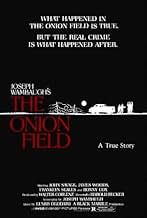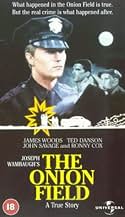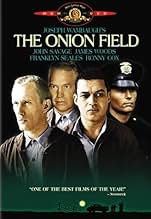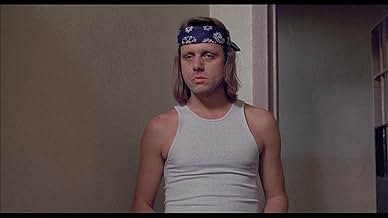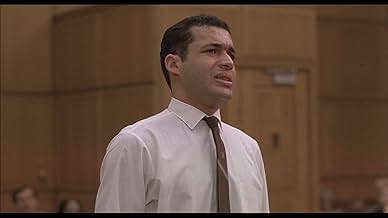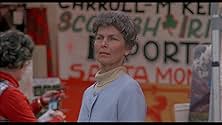A Los Angeles cop and his partner stop a car at night for a minor traffic violation. The car contains two petty criminals. One of the criminals panics, and orders the two cops into the car, at gunpoint, and then commands one of the officers to drive the car out to the desert. Near Bakersfield, the car turns off onto a lonesome dirt road next to an onion field. Shortly thereafter, a violent confrontation occurs. Not everyone survives.
With a plot that is direct and easy to follow, "The Onion Field" tells this story in a straightforward manner. There are almost no plot twists or turns. And the film has a breathtaking sense of authenticity. Indeed, the film's kidnapping scene takes place at the intersection of Carlos and Gower, the exact location where the real life kidnapping occurred.
The film's pacing is rather slow. Scenes tend to be lengthy, with emphasis on character development. The first half gives us a snapshot of the everyday lives, both of the cops and of the two thieves. It also describes the kidnapping incident that brought them together, and the ordeal on the deserted road. Much of the second half takes place in a courtroom setting, as we see how the criminal trial plays out. This second half of the film renders a scathing indictment of the American judicial process.
The film's cinematography is fine, if perhaps somewhat dark. The background music is low-key and appropriately ominous. Production design is adequate.
Based on Joseph Wambaugh's book, the screen story itself is the strength of the film. But the acting also is quite good. James Woods, Franklyn Seales, and Ted Danson are all convincing in their roles. John Savage gives a great performance too, despite his tendency to talk as if he's got marbles in his mouth.
Fact-based films have an inherent advantage over fictional films, in my opinion. And, "The Onion Field" is made with such authenticity, with such a sense of purpose and dedication, it easily makes my list of the best crime films of the 1970s.

